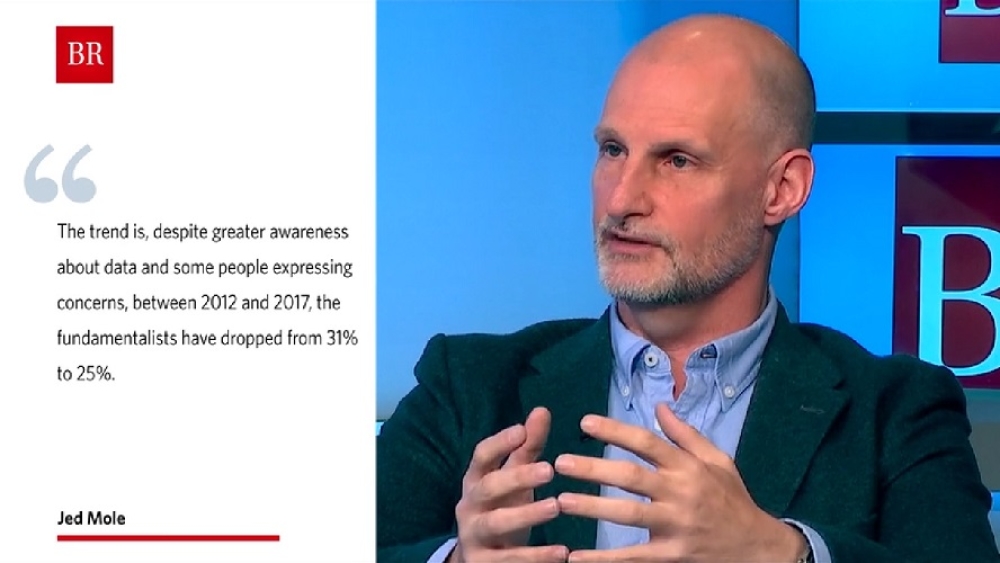Connecting the dots: customer first, data first
05 Jul 2018

“Some people are nervous about data, but don’t be scared of it,” says Jed Mole, Vice-President of Marketing at Acxiom, in an interview with Business Reporter. He cites the DMA and Foresight Factory research into data privacy, showing that the trend since 2012 has been for consumers to become more trusting over time.
“It shows there are three main types of people: there are the ‘Data Pragmatists’, who are willing to share data in return for something, like special offers or preferential treatment; there are the ‘Data fundamentalists’, the people who are against sharing data; and then there are the ‘Unconcerned’.”
The trend is that people are more accepting of sharing data: the segments comprising the ‘Pragmatists’ and ‘Unconcerned’ (those who don’t mind whether they share data or not) are becoming larger over time, despite the recent headlines that might have sparked caution amongst the populace.
Jed goes on to describe how businesses can use data both ethically and legally – mentioning the importance of the GDPR for both marketers and consumers.
“We live in a data world. 69% of people agreed that data was an essential part of everyday life. We need to be very careful we don’t switch the data off – what we need to get good at doing is understanding rather than overreacting. Whether that’s brands or consumers – and GDPR will help here to increase transparency, access and control for the consumer. Data will continue to drive value and better customer experiences going forward.”
As people become more aware of the sheer volume of data being collected and stored about them, will consumers begin to regulate themselves more? Will data become scarce as consumers become more cautious, making building a picture of the consumer more difficult for marketers?
The research says the opposite, according to Jed. “Because of the benefits that sharing data brings to us – the utility, the education, the entertainment and the communication – I think people are always going to, one way or another, want to work with the data. Then it’s a partnership between the legislators, the industry, and the consumer to really find the right way forward. It’s all about balance really.”
Finally, Jed outlines three key practices for marketers to self-regulate and make the industry more trustworthy to the consumer:
- Believe in, understand and practice data ethics: this will create the right mindset for being good at data-driven marketing
- Connect and unify at the data layer for better marketing: those 1s and 0s equalling real people, to deliver better customer experience
- To drive greater transparency about the value of data: data helps marketing be better and helps consumers have a better experience
The overall message is to embrace data, not be scared of it. The key is for businesses and marketers to communicate the benefits of sharing data to consumers.
See the full interview with Jed Mole at Business Reporter here: https://business-reporter.co.uk/2018/07/03/failure-to-use-data-to-drive-consumer-value-is-not-an-option-3/#gsc.tab=0